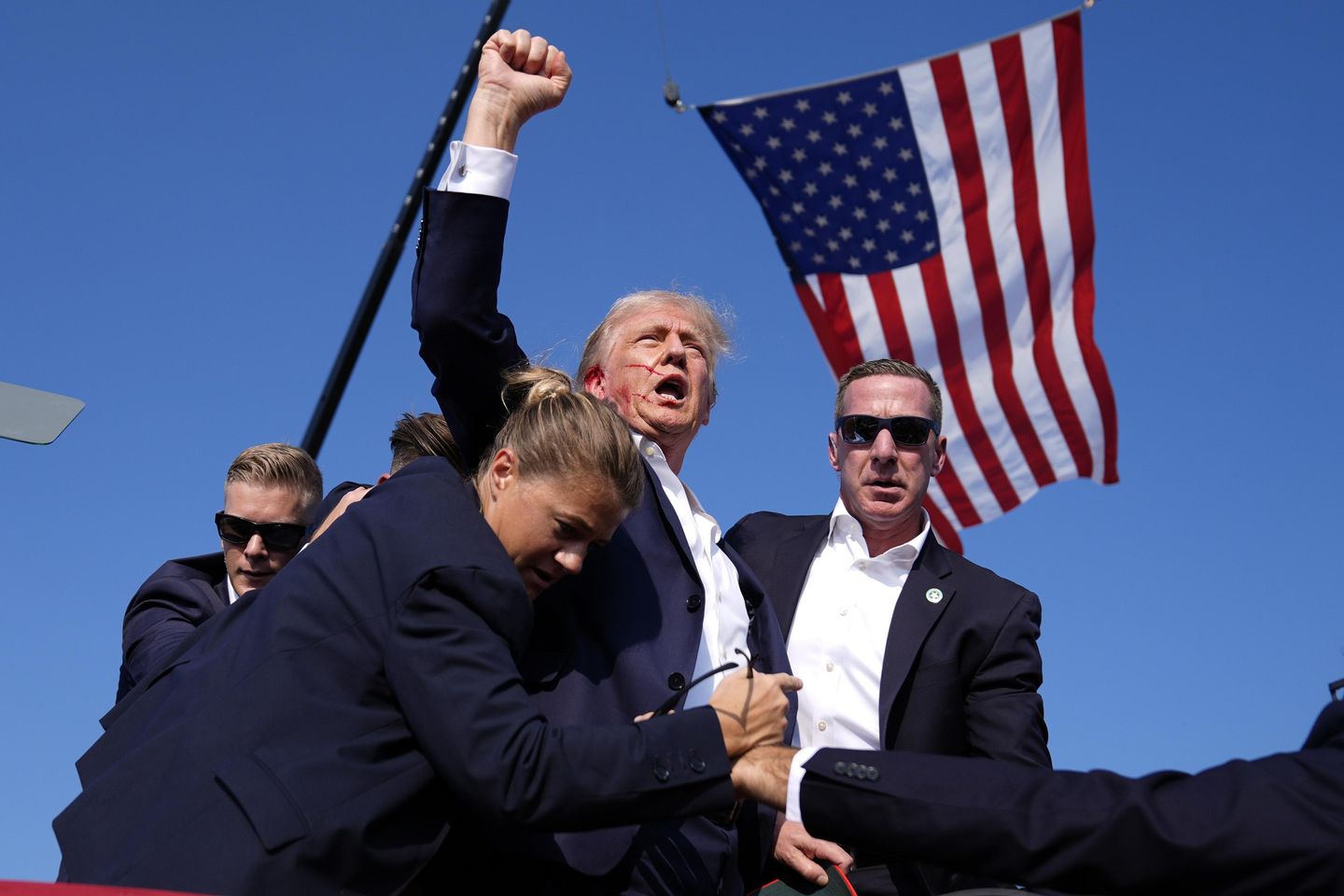
The Secret Service’s “cascade of preventable failures” in Butler, Pennsylvania, nearly cost President Trump his life last year, and the disciplinary penalties that followed were “far too weak,” a new Senate report concluded.
The report, released Sunday on the first anniversary of the July 13 rally in Butler, wrapped up the Senate Homeland Security and Governmental Affairs Committee’s probe of the Secret Service’s “stunning failures” that led to the deadly sniper-style attack in which Mr. Trump was shot in the ear.
The committee describes “a disturbing pattern of communication failure and negligence that culminated in a preventable tragedy.”
Thomas Matthew Crooks, the 20-year-old gunman, “was able to evade detection by the country’s top protective agency for nearly 45 minutes” due to limited coordination among security partners, line-of-sight vulnerabilities that were flagged and not addressed and other failures, the report said.
No one at the Secret Service was fired.
The report was yet another black eye for the Secret Service, which has suffered a series of scandals in recent years involving agents using prostitutes and getting into alcohol-fueled altercations in foreign countries.
In another failure at the Butler rally, the Secret Service had classified intelligence about a threat to Mr. Trump 10 days before the assassination attempt but did not share it with agents and law enforcement partners running security at the event, the Government Accountability Office said last week.
A recent bright spot for the Secret Service, however, was agents successfully thwarting a planned assassination last September before a shot was fired at Mr. Trump on his Florida golf course.
In Butler, Crooks fired eight rounds, grazing Mr. Trump’s ear, killing one rallygoer and injuring two others before a Secret Service counter sniper killed him.
“What happened was inexcusable and the consequences imposed for the failures so far do not reflect the severity of the situation,” the Senate committee said.
Kimberly Cheatle, who was the Secret Service director at the time, resigned a few weeks after the Butler rally under pressure from Congress.
Before her resignation, Ms. Cheatle testified before the House Oversight Committee that no assets requested for Butler were denied.
The Senate committee report said her testimony was false and cites two instances in which assets were denied for Butler. Mr. Trump’s security detail requested enhanced counter-unmanned aerial system assets and a counter assault team liaison, both of which were denied because of a lack of manpower.
In total, the committee found at least 10 asset requests from Mr. Trump’s detail during the 2024 campaign that Secret Service headquarters denied or left unfulfilled.
Only six Secret Service agents faced disciplinary action after lengthy internal reviews, which the committee said does not reflect the breadth of accountability needed.
Sen. Rand Paul, Kentucky Republican and the committee’s chairman, had to subpoena the Secret Service earlier this month to receive the information on what disciplinary action was taken. Six employees received suspensions without pay ranging from 10 to 42 days.
“The American people deserve better,” the report said.
The committee did not name the six individuals who were disciplined but described their roles.
The special agent in charge of the Pittsburgh field office, which was in charge of the majority of the planning for the Butler rally, was suspended for 14 days without pay.
Three others in the Pittsburgh office were also suspended without pay: 10 days for the assistant to the special agent in charge, 14 days for the lead advance agent, and 14 days for the site counterpart.
Those Pittsburgh agents also previously were relegated to telework status as the Secret Service’s internal review unfolded, along with the protective intelligence advance lead agent, who was not among those later suspended.
A member of Mr. Trump’s protective detail who served as the site agent for the Butler rally was recently suspended for 42 days without pay. In December, the agent had been reassigned from Mr. Trump’s detail to the Miami Field Office. The agent was also relegated to restricted duty status for more than seven months.
The leader of the four-man countersniper team that worked the Butler rally was suspended without pay for 35 days and remains on restricted duty status.
He and the lead advance agent both received shorter suspensions than initially recommended.
The committee said other agents involved in providing security for Butler should have been disciplined as well, particularly the agent who ran the security room. That agent failed to relay information he obtained regarding a suspicious individual with a range finder, who later turned out to be Crooks, to agents on Mr. Trump’s detail who could have prevented him from taking the stage.
The security room agent told the committee he relayed the information about the suspicious person to an agent who was in the room to pass along to the counter sniper team.
The Secret Service did not find that the security room agent violated any agency policies. The agent retired last month.
The committee also took issue with how long it took the Secret Service to implement the disciplinary actions, saying two of the suspensions were not completed until after Mr. Paul subpoenaed the information.
Mr. Paul decided to close the committee’s investigation despite outstanding information requests to the FBI and the Bureau of Alcohol, Tobacco, Firearms and Explosives.
Sen. Ron Johnson, who chairs the committee’s Permanent Subcommittee on Investigations, is continuing his own investigation, having recently subpoenaed the FBI for records about Crooks, security camera footage and forensic reports.










